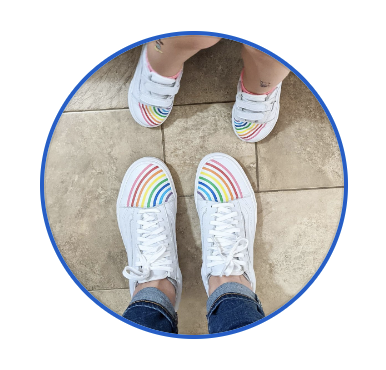This post may contain affiliate links. Every link is hand-selected by our team, and it isn’t dependent on receiving a commission. You can view our full policy here.
While reading the New Yorker this morning (yup, I do read things beyond what’s coming in the next FabFitFun box and the ingredients in Popeyes cajun sauce sometimes), I came across an interesting quote:
“We’re in the midst of this cancel culture: ‘This person is gay, this person didn’t fight in the military, this person called a black person an epithet in 1986. Anything I find that gives me a reason to cancel—done,” actor Dondré Whitfield said.
It was part of “Hype the Vote,” an article in the magazine’s March 9, 2020, issue, about a gathering of people from the media, tech and civic-engagement fields who were discussing ways to get youths and people of color to vote in this year’s elections. Whitfield was explaining how he’d heard people say they weren’t voting because they couldn’t bring themselves to vote for “the lesser of evils,” and his note struck a chord with me: Has ‘cancel culture’ become a way to opt-out of responsibility—while simultaneously, perhaps subconsciously, making ourselves feel more self-righteous?
Initially, the notion of “canceling” someone or something was basically announcing that due to something deeply offensive a celeb or public figure had done, he/she/they would no lose their cachet in the public eye. It was a call to stop fawning over them, letting them fade from the spotlight. Though, as the term became more widespread, it seemed like just about anyone could get canceled—because, after all, haven’t we all done or said things we’ve regretted at some point?
Where do you draw the line?
That’s what made Whitfield’s quote so interesting to me: It reframed cancel culture as yet another social yardstick; a way of judging each other.
We’re not as bad as he or she is, and we call out their flaws and declare them canceled, all the while feeling a bit better about ourselves because, well, whatever we’ve done in our lives isn’t as bad as what that person did. Declaring someone canceled brands them as less than you; there’s no room for forgiveness or understanding. Like any other label, you’ve put that person in a box, so you don’t have to invest the mental energy to break down the full complexity of that human being. Things are black and white, good or bad, and you can move along, devoting your time to other pursuits, like the latest Bachelor fan theory or whether face oil or serum should be step three in your skincare routine.
Similarly, in regard to the election, “canceling” gives you an out—you’re not to blame if the next president falls short of your expectations, because you didn’t vote for any of them. You judged them all, you deemed them all less-than, so you opted out. It’s not your fault. Although the same argument could be made that if you don’t vote at all, you’ve effectively silenced yourself, and it is your fault for not at least trying to create the world you’d like to live in.
Granted, there are people who have done truly awful, terrible things who have been “canceled,” and I get the point of making a call to say, “Hey, can we stop giving this person media attention and shift our focus to people doing better things for humanity?” It’s just that at this point, the concept seems to have reached a tipping point, where—to Whitfield’s point—canceling can happen over a range of infractions, and it’s worth exploring why we’re canceling something (and its ripple effect) just as much as the act that deemed someone canceled.
Photo by Sebastian Pichler on Unsplash




